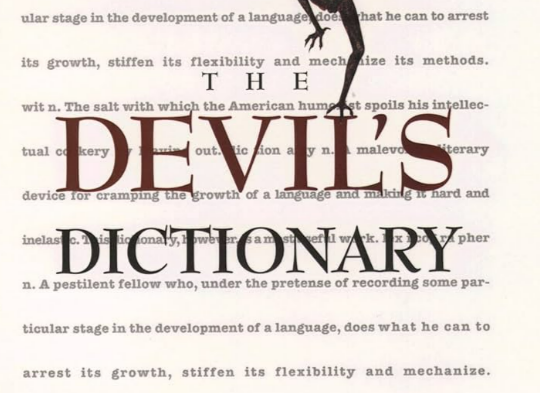Chapter J
byChapter J opens with Bierce’s bemused reflection on the letter J, not merely as a sound but as a symbol of linguistic inconsistency and invention. He imagines its form as borrowed from the curled tail of a dog, suggesting that language often evolves from whimsy rather than logic. This image, both playful and satirical, sets the tone for his mock scholarship, which includes the fabricated figure of Dr. Jocolpus Bumer, whose untimely demise serves as a comical warning against taking philology too seriously. The parody of academic analysis is used to mock the pomp of linguistic tradition, exposing how even language—something so fundamental—is riddled with arbitrary decisions and comic origins. Bierce invites readers to question the authority of conventions we rarely think to doubt.
Jealous is redefined not as protective affection, but as irrational fear sparked by perceived threats to something whose true value may be uncertain. Bierce points out the irony that jealousy often attaches itself to things not inherently worthy of the emotion, highlighting how desire distorts judgment. His perspective challenges the idea that jealousy arises from love, framing it instead as insecurity clinging to illusion. The entry presents jealousy as a self-inflicted torment fueled by imagination more than reality. Through this, Bierce critiques the emotional economy of human relationships, where perceived loss is often exaggerated beyond logic.
With Jester, Bierce turns to the role of historical fools, who were often perceived as the only truth-tellers in a royal court. While they wore the mask of humor, their barbs frequently exposed the absurdity of those in power. Bierce flips this dynamic, implying that the monarch was often the actual source of folly, while the jester merely held up the mirror. This commentary draws attention to the performance of leadership and the audience that enables it. In this view, jesters become narrators of truth disguised as comedy, while rulers serve as unwitting actors in their own farce.
Jews-harp receives Bierce’s attention as an example of musical optimism. He defines it as an instrument that produces sound of great enthusiasm, if not great quality. The entry ridicules the gap between intent and outcome, suggesting that noise is often mistaken for music. This definition humorously critiques how cultural tools are often elevated beyond their function, with more weight given to tradition than to utility. Bierce’s satire here applies equally to art, politics, and language—arenas where form frequently trumps substance.
The inclusion of Joss-sticks gives Bierce an opportunity to explore religious ritual through a skeptical lens. Describing them as incense used in Eastern traditions, he notes how their fragrant smoke is offered to deities who do not smell, hear, or respond. His mock reverence reveals the absurdity he sees in ceremonial acts that lack practical connection to divine engagement. Rather than mocking faith outright, Bierce critiques how rituals persist even when stripped of original meaning. He subtly suggests that humans cling to actions as comfort, even when belief has faded.
Justice, one of the chapter’s final entries, is defined with classic Bierce cynicism—as a transaction rather than a principle. He presents it as a good sold by the State, rarely distributed evenly and often denied entirely. This reframing implies that justice, far from being blind or fair, is influenced by wealth, power, and circumstance. Bierce’s definition confronts readers with a hard truth: systems built to uphold fairness are often the first to fail those in need. The power of this entry lies in its brutal simplicity, laying bare the commodification of morality.
Through these entries, Bierce shows how a single letter can unlock deep critique and dark humor. Every word beginning with J becomes a case study in contradiction—of sound and sense, of purpose and pretense. Bierce exposes how language not only reflects but reinforces the absurdities of human thought. He doesn’t just define—he dissects. His lexicon forces readers to reconsider the words they use and the truths they assume, offering satire as both mirror and scalpel. In the world of The Devil’s Dictionary, even the smallest letters reveal the biggest follies.

